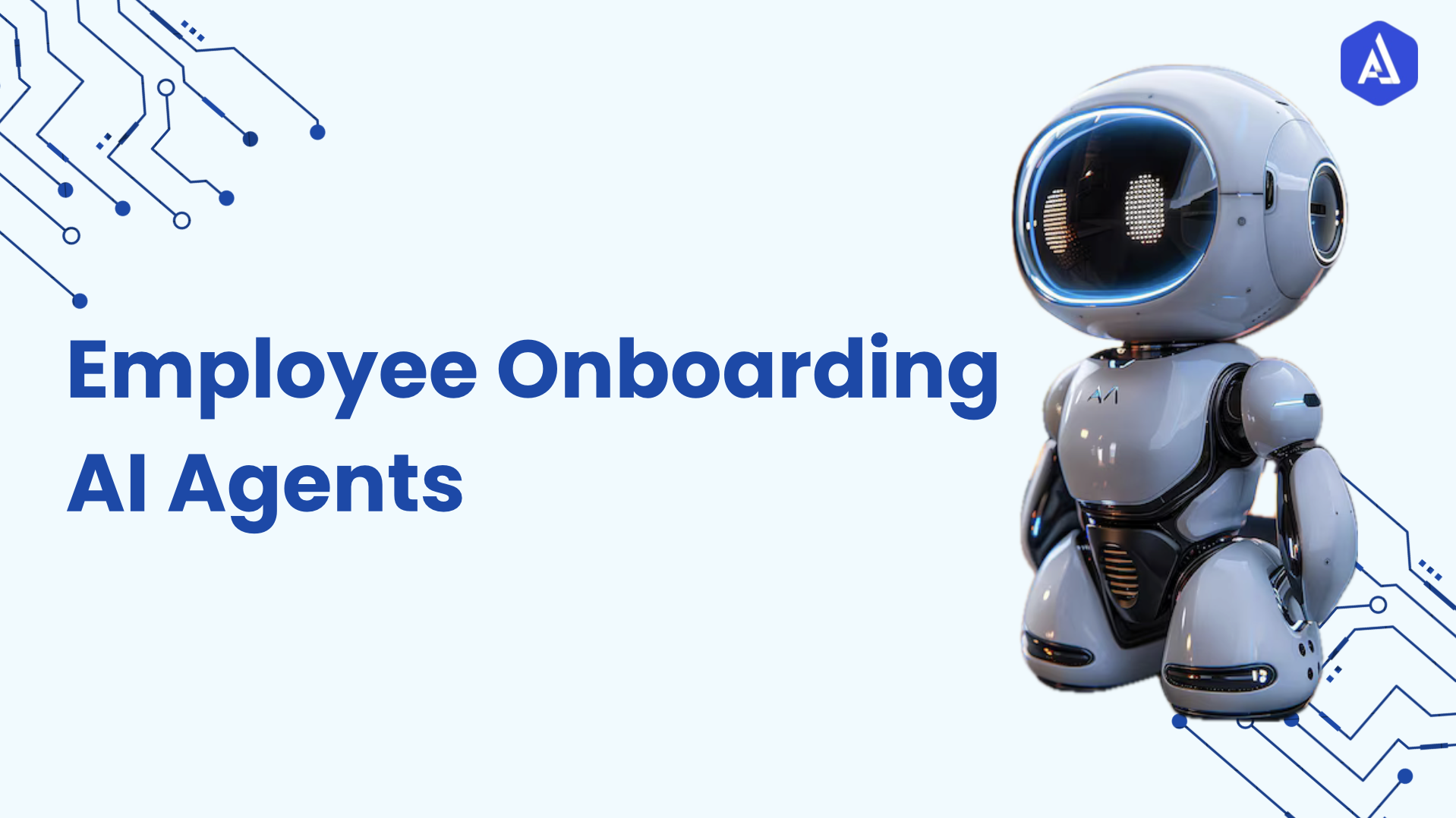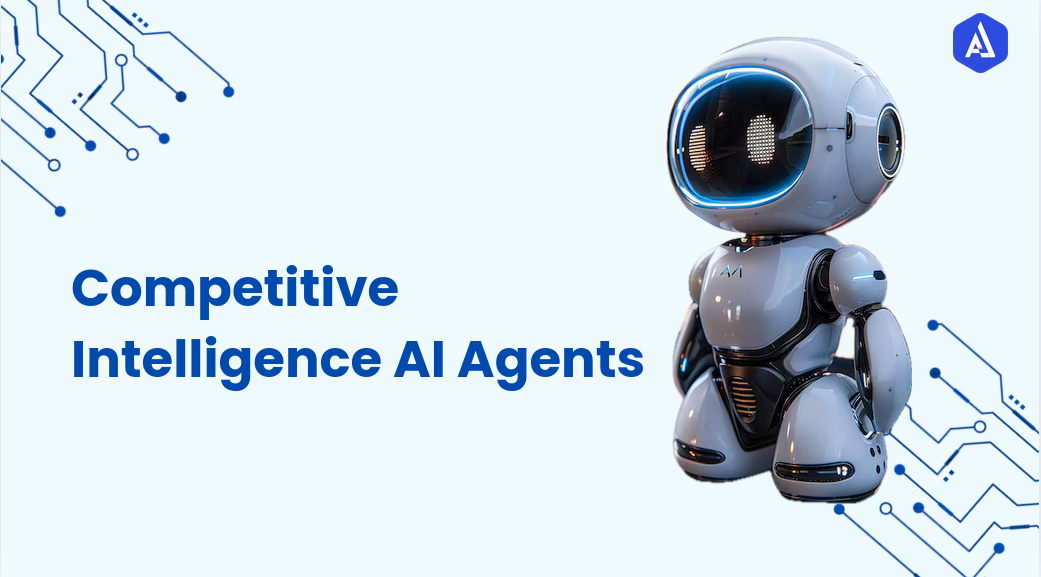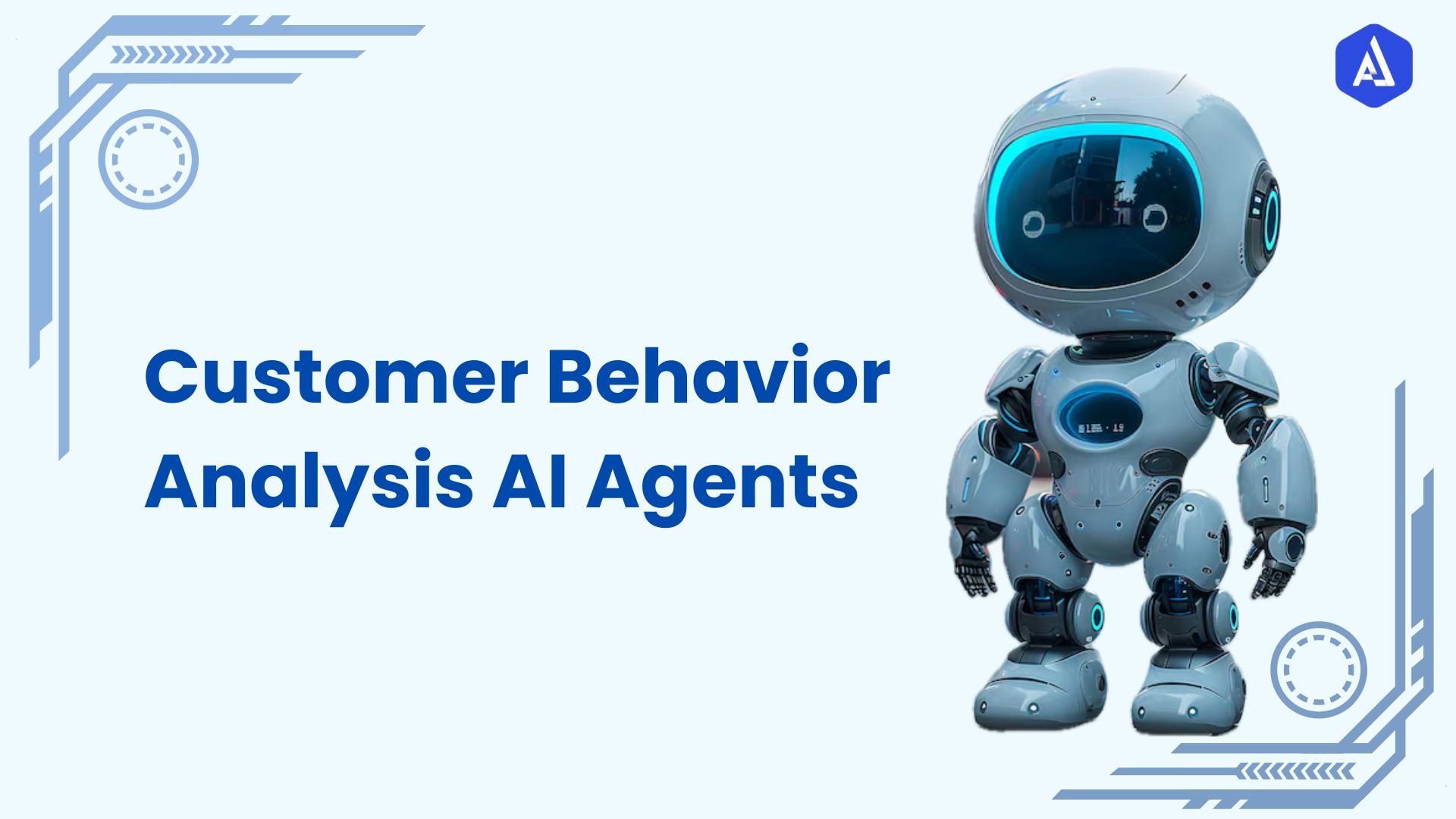Introduction
Supplier performance evaluation AI agents are in the process of changing the ways of how businesses evaluate suppliers. These AI agents are helpful in sense-making and decision-making by delivering the information in a package form, next to real-time about the performances made by the several suppliers with whom an organization deals with.
This way not only increases the speed and reliability of the supplied information but also allows businesses to establish more sound decision-making approaches, leading to enhanced relations with their suppliers.
About the Process
Supplier performance measurement is a critical element in the management of the supply chain since it assists firms in measuring, controlling and improving the efficiency of the suppliers. The traditional process involves several steps:
-
Data Collection: Evaluation of suppliers is carried out with data obtained from different companies' sources. Such records are invoices, delivery records, purchase orders, customers’ feedback records, product quality records, and records of compliance, among others.
This information is frequently located on different systems, which prevents users from receiving a complete and integrated picture of consolidated data.
-
Defining Performance Metrics: KPIs are set to measure performance from the suppliers’ side. Such percentile targets may encompass timeliness, product quality, customer service response, price and contract adherence.
The above-noted indices are important measures to assess performance against the expectations of the organization from its suppliers.
-
Supplier Assessment: This data is used to rank suppliers. This may include examinations of performance on a planned schedule that may be per quarter or per year.
-
Suppliers are often ranked by some rating system, which is often based on key performance indicators which often are not very objective and standard.
-
Feedback and Action Plans: After any assessments are done, then the results are shared with the suppliers. Therefore, improvement plans or corrective actions may be provided.
-
These plans are aimed at the existence of performance gaps, but the process is unduly slow and more frequently reactive rather than proactive.
-
Monitoring and Re-evaluation: This performance means that assessment of supplier’s performance is an ongoing process as an assurance of improvement. These re assessments are made from time to time to see the extent of improvement and whether planned corrective measures have been helpful.
Nevertheless, the feedback loop is commonly delayed, making it problematic to gain feedback about the effectiveness of a particular decision and adjust accordingly during operation.
Although these processes are crucial for developing and sustaining good relations with suppliers, they are tedious, liable to being influenced by human error, and may act on bias_.
Machine learning creates added value in these conventional assessment activities by consolidating data, offering up-to-date results, and highlighting patterns difficult to recognize otherwise.
Talk About the Agent
An automated supplier performance monitoring and evaluation system is developed with the intention of using AI agents for monitoring, evaluating and reporting on the performance of suppliers.
These agents apply sophisticated tools like Machine Learning, NLP and Big Data Analytics to solve or facilitate large data and come up with solutions.
Capabilities of the AI Agent:
-
Real-Time Data Aggregation: Here, it is illustrated how data from different sources such as ERP systems, inventory management software, customer feedback and purchase order record can be collected by AI agents.
This makes any performance assessment based on updated data and also saves time from having to enter data manually.
-
Automated Scoring and Benchmarking: The performance analytics of each supplier involve values of the predefined KPIs for which the AI agents compute on their own.
These scores can then be compared to industry standards or past performance benchmarks, which gives the business an accurate and quantified view of a supplier’s capability.
The selection through the AI agent removes prejudice as the human factor is known to make the evaluations prejudiced.
-
Advanced Analytics and Pattern Recognition: These AI agents can readily point out trends and patterns that we human operators are not in a position to envision. For example, they can notice a progressive degradation of the quality of the supplier’s product, observe that the supplier regularly delivers an order late, or something in the supplier’s message history may indicate a problem.
This helps businessmen to make appropriate decisions before catastrophes occur.
-
Predictive Analytics: AI agents have access to the information received from previous interactions with the suppliers, as well as current trends, which allows the AI agents to forecast future behavior of the suppliers.
For instance, with delivery history, the AI can give insights into future delays so that the businesses may prevent it. Forecaster skills also apply to recognizing suppliers that may be a threat to not meet future demand or performance requirements.
-
Continuous Monitoring and Alerts: AI agents offer performance modulating of suppliers and performance feedback. If performance is below the threshold that an agent has established, then an alert is created and provided to relevant stakeholders.
This feedback helps businesses solve problems as and when they occur and does not require waiting for an end-of-the-year appraisal.
-
Personalized Improvement Plans: According to the performance data, the AI agents can estimate and provide each supplier with its own development schedule. While these plans can include recommendations for new processes, quality control or improved communication, several examples are provided below. Through a set of dynamic recommendations delivered by the AI agent, suppliers are geared to enhance efficiency and advance the supplier-Business relationship
Through these core activities, the AI agents help to reduce and optimize the woes associated with evaluating supplier performance since these involve undertaking the whole process with less human interferences and subjectivity. The end product is a data driven model of supplier management that helps enhance its operational efficiency.
Benefits and Values
Chatbots’ implementation in evaluating the suppliers’ performance means that organizations have a variety of advantages, including increased effectiveness of a range of activities and better decision-making processes. Below are some of the key benefits:
-
Increased Efficiency: AI agents help to save time since they carry out activities such as data gathering, report writing and performance evaluation. With less time and resources spent on it, organizations can get their evaluations done much faster than if they did everything manually.
This also helps the procurement teams free up some of their time and effort without compromising on other procurement tasks, such as supplier negotiations and developing relationships with suppliers.
-
Improved Decision-Making: Realtime, data processing thus assists organizational administrators in making sound decisions on supplier selection, contracting and performance.
The use of AI systems includes The capacity of the AI to identify trends and potential and to offer credible forecasts, enabling such businesses to make appropriate and long-term decisions.
-
Reduced Costs: These evaluations by the use of AI are faster compared to manual methods allowing organizations to intervene and correct undesirable behaviors by suppliers before they lead to major disruptions.
Further, automating the evaluations also means cutting operation expenses that may be incurred through manually entering data and preparing the assessments. Thus, in the long run, they can be large enough to stand for a significant portion of the population’s savings.
-
Enhanced Objectivity and Fairness: In assessing suppliers, the AI agents use criteria that are assigned to the suppliers, and this makes the entire process fair. This also reduces the possibility of bias from human evaluators giving an unfair performance assessment to the suppliers. Therefore, the new platform can help businesses to work more effectively with their suppliers, building trust relations as a foundation for such cooperation.
-
Proactive Supplier Management: Due to its ability to monitor activities on a constant basis and provide timely updates it becomes easier for a business to manage its suppliers effectively through the use of AI agents. Finally, the proactive approach means that, unlike in reactive strategic management, businesses can look for probable issues that may be developed into problems and take steps to prevent them from ever arising. Such a strategy helps to exclude potential issues and guarantee that the supply chain function will be efficient.
-
Scalability: In the course of business operations and the continuous identification of suppliers, AI agents can handle the influx of data as organizations expand. This scalability makes it possible to ease the supplier performance evaluation no matter the number of suppliers.
By deploying AI in the supplier evaluation procedures, the flow of an organization’s supply chain management can become healthier, smoother, more efficient, and more proactive as better supplier relations are needed.
Use Cases
The AI agents for supplier performance evaluation can therefore be deployed in most industries and can easily fit the operational needs of an organization. Here are some examples of use cases across different sectors:
-
Manufacturing: In the manufacturing area also, the AI agents can evaluate the suppliers based on product quality aspects, lead time, delivery performance and price factors.
The supplier’s performance can also be monitored daily or weekly to detect some problems, such as repeated appearance of defects, or constant delays in supply, which can be solved before affecting the business.
-
Retail: That is why AI agents should be used by retailers in order to evaluate suppliers’ performances, the frequency of order accuracy and timely deliveries, and customer reviews.
AI also supports the identification of changes in demand and prepares the suppliers in advance for various changes in the market. AI should be used in the supply chain to help retailers minimize situations where there is either a lack of stock or the opposite.
-
Technology and Electronics: For firms especially in the technology industry, the AI agents can then assess suppliers regarding the quality of products as well as reliability of supply-chain deliveries and other regulatory compliances.
The AI agent could also be used to pinpoint certain suppliers that are best suited to certain product categories or markets and thus promote a better fit between suppliers and the business’ objectives.
-
Healthcare: Where a supplier is operating in specialties such as the healthcare industry, supplier performance tends to be tied to compliance with regulatory compliance standards and product safety.
Thus, AI agents can assess suppliers about their adherence to these standards, delivery dates, and Medical Supplies quality. Also, it can predict such risks associated with products recalls or possible regulatory infringement to reduce such risks in advance.
-
Automotive: In the automotive industry, for example, the AI agents should be able to evaluate their respective parts supplier regarding the quality of the products to be supplied, the delivery time frame, as well as the cost.
Computer-aided supply chain analyses for risk prediction could be valuable for automotive manufacturers in quickly detecting reverse supply chain partners who are most vulnerable to failure so that protective measures can be implemented before supply disruptions affect production.
The above use cases show various ways through which the AI agents have different applicability in different industries and the supplier relationship where helps its users to get more knowledge about the suppliers and their performance as well as about the supply chain.
Considerations
Evaluation of suppliers’ performance through the use of artificial intelligence agents is not a purely technical issue. Below are some key considerations for successful implementation:
-
Data Integration and Quality: AI agents use reliable and accurate information to prepare sound performance reports. Companies must take data from ERP systems and other sources in procurement platforms' suppliers’ databases and structure the data for AI applications.
-
Customization of Metrics: It should be understood that each organization has its peculiarities of using the services of suppliers, and, therefore, requirements for evaluating performance can be quite different.
There is the need to fine-tune the AI agent to meet these particular needs and KPIs for the AI to generate meaningful information that will be useful for decision-making.
-
Supplier Buy-In: The suppliers may have responses that are quite negative as they may not be comfortable with being assessed by AI agents, this maybe due to the fact that they may feel that the process is not personal of that they cannot understand why they are being evaluated.
This means it is necessary for organizations to explain the advantages of the AI driven evaluations to the suppliers and engage them in the discourse on possible ways forward regarding performance issues.
-
Bias Mitigation: However, using AI usually minimizes human bias so it’s necessary to audit AI algorithms often in a bid to remove any bias that can be present such as bias towards specific suppliers.
Second, biases will be reduced because of the use of monitoring and evaluation of AI models, on a continuous basis.
-
Change Management: Adopting AI as a tool to assess supplier performance will probably affect its business processes and structural arrangements. Companies should educate their procurement teams on how best to use the insights from AI so that they can incorporate it into their activities properly.
Through understanding these factors, organizations are well placed to manage factors that will help in the successful implementation and integration of AI agents in supplier performance evaluation.
Usability
As AI continues to evolve in the supplier performance evaluation space, its usability will become increasingly intuitive and accessible for all stakeholders, from procurement teams to suppliers themselves. Here’s how the usability of AI-driven solutions will enhance the supplier performance evaluation process in the future:
-
User-Friendly Dashboards: Future AI systems will offer highly intuitive, customizable dashboards that allow users to easily track and visualize supplier performance metrics, risks, and collaboration activities. These dashboards will enable procurement managers and decision-makers to quickly spot trends, identify potential risks, and take proactive actions.
-
Seamless Integration: AI tools will seamlessly integrate with existing Enterprise Resource Planning (ERP) and Supplier Relationship Management (SRM) systems, minimizing the learning curve for teams already familiar with these platforms. This will allow users to make better, data-driven decisions without disrupting established workflows.
-
Interactive Reporting: Real-time, interactive reports will allow users to drill down into specific performance indicators, risk assessments, and collaboration efforts. Procurement professionals will be able to generate custom reports with ease, gaining insights that are relevant to their specific needs and goals.
-
Collaborative Features: By integrating features like joint feedback, improvement plans, and shared data reviews, the AI systems will enable suppliers and buyers to collaborate directly within the platform. This will enhance transparency and create a more open, cooperative relationship, allowing both parties to actively engage in the performance evaluation.
-
Automated Alerts and Recommendations: To further enhance usability, AI systems will send automated alerts and action-based recommendations based on real-time data. This will enable users to take immediate action when risks are identified or when performance drops below a certain threshold without the need for constant manual monitoring.
-
Self-Learning and Adaptability: AI models will continuously learn from past evaluations and adapt to changing supply chain dynamics. The system will evolve over time to offer more accurate predictions, improve risk assessments, and provide smarter recommendations. Users will experience a progressively more intuitive system aligned with their specific business needs.


